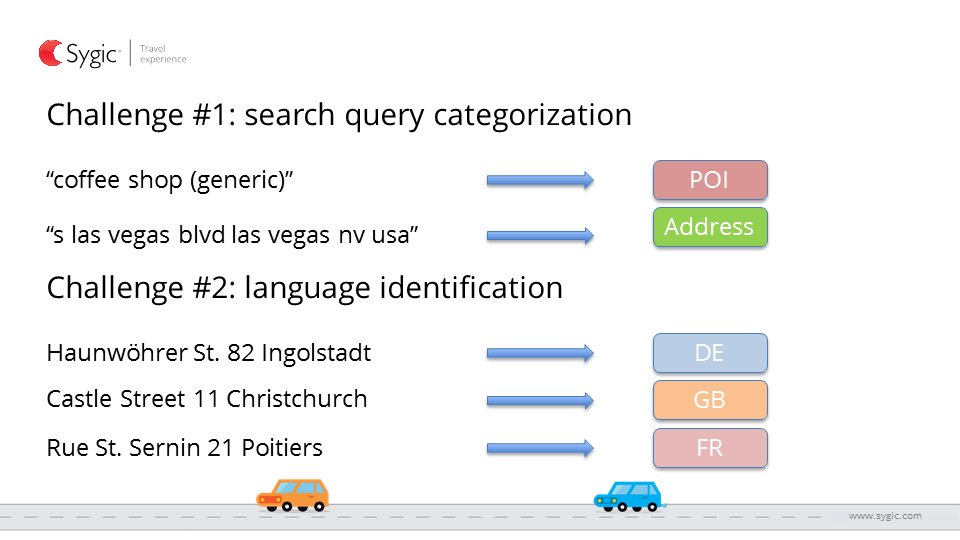In August, our colleagues managed to win an international hackathon in Budapest. They nailed it with a machine-learning solution that optimizes address search in our navigation app.
All 10 teams, representing various companies, had 2 days to work on and present a solution to a business problem. Such concept is used at our Sygic Innovation Day, so the guys knew exactly what to expect.
They elaborated a machine-learning topic, demonstrating how to teach a computer to categorize search inputs and define their language, which simplifies searching within immense map data and provides location faster and in a more precise way. Unlike humans, a computer does not understand word order and synonyms that vary with different languages and cannot distinguish a postal address from a point of interest (POI), such as a restaurant or a gallery. Moreover, abbreviations are often misinterpreted, which may result in proposing seemingly random addresses.

Incredibly enough, a predictive algorithm can teach a computer how to divine what the user is looking for as they type. Thanks to this acquired knowledge, a computer is able to normalize abbreviations and interpret an input “20 E 36th St” as “Twenty East Thirty-Sixth Street”, basing its search on this correct form. Just as a student in class, a computer needs to be tested as it can get lazy and just memorize the sample data instead of thinking of the correct solution.
This improvement can significantly help our business clients such as dispatch companies, propose the right coordinates and consequently save time. Guys from Location-Based Services Platform team amazed not only the organizors but also other contestants and won the hackathon.
It needs to be said that the proposed solution is still just a draft and it happens that the computer mixes up addresses with POIs. If you think you understand where the problem can be, join the team and do it better :).

